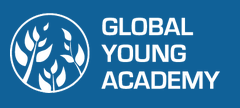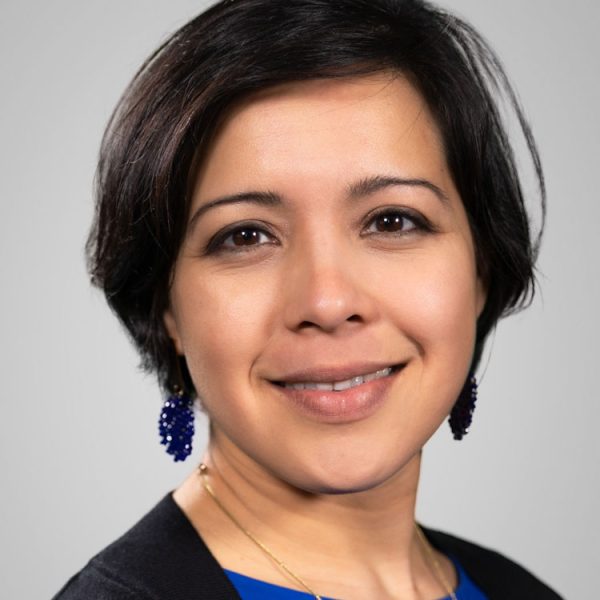
University College Cork, Ireland; GYA Co-Chair
Yensi is Co-Chair of the GYA and a Marie Skłodowska-Curie Postdoctoral Fellow at the Nobel Prize-awarded Institute for Protein Design (University of Washington) and the Cancer Research Centre at University College Cork. Her research applies cutting-edge computational protein design to engineer de novo proteins for cancer therapies and broader biomedical applications.
In addition to her scientific work, Yensi has co-founded multiple successful ventures, including an Irish diagnostics company and the first molecular biology research lab at the National University of Honduras.
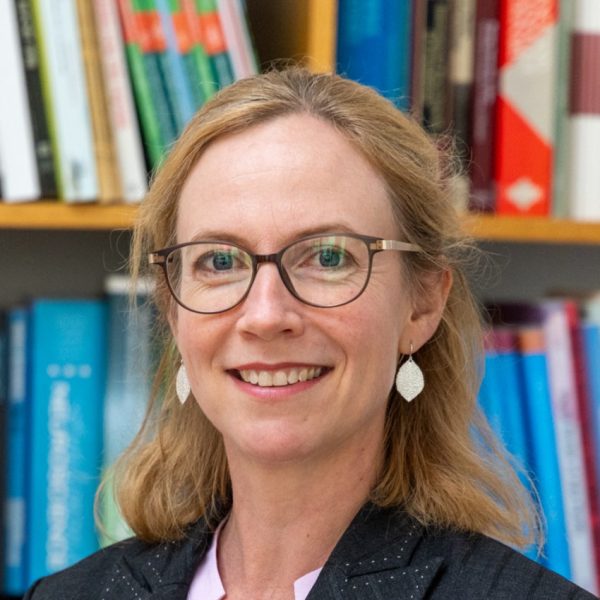
Vanessa McBride
Science Director, International Science Council
Vanessa has a PhD in Astronomy from the University of Southampton. She has over fifteen years of experience, including various leadership roles, across university, research infrastructure and science-for-development settings in an international arena. She joins the ISC from the International Astronomical Union’s Office for Astronomy for Development, where she bridged the gap between the academic astronomy and development communities. Vanessa brings a passion for science and society, a perspective from the global south, and a connection with the member organizations of ISC.
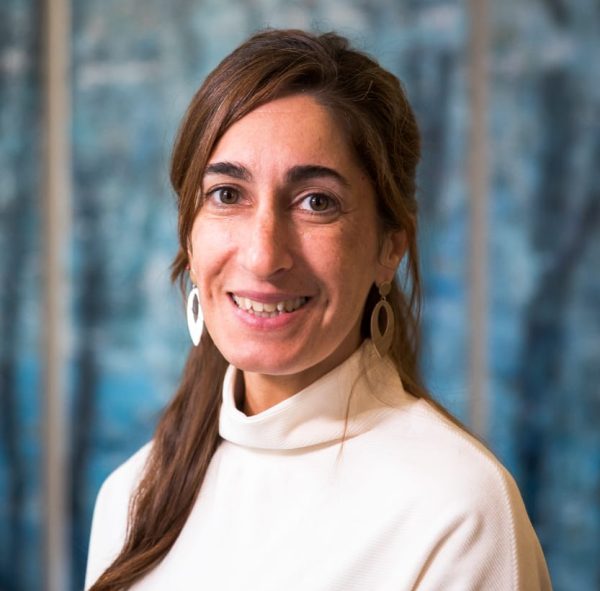
Biomedical Researcher,University of Buenos Aires CONICET, Argentina; CoARA Steering Board member & GYA member
Luciana is an Infectious Diseases researcher at INBIRS (University of Buenos Aires-CONICET) and an Immunology professor at UBA’s School of Medicine. Her team advances understanding of the immune response to Mycobacterium tuberculosis, the pathogen behind tuberculosis. A pioneer in global collaboration, she established the first French-Argentine International Associate Laboratory focused on TB/HIV co-infection.
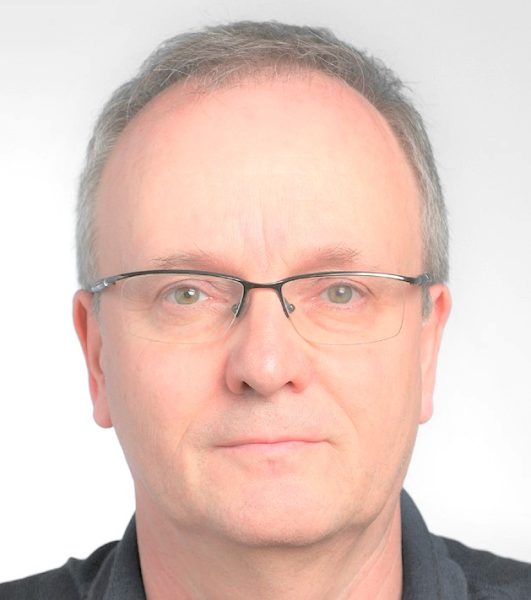
Neville Compton
Editor-in-Chief of Small, Wiley
After completing his PhD in Chemistry from the University of Newcastle Upon Tyne, UK, and postdoctoral research at the University of Heidelberg in Germany, Neville joined the editorial staff of Angewandte Chemie in 1992. He subsequently served as Deputy Editor and Editor-in-Chief of both Angewandte Chemie and Chemistry – A European Journal, and with his team launched ChemPlusChem. Since October 2022 Neville has been the Editor-in-Chief of Small and Executive Editor for the Small family of journals. Neville has won 3 Wiley Pacesetter Awards for innovations associated with improving the publishing experience for authors.
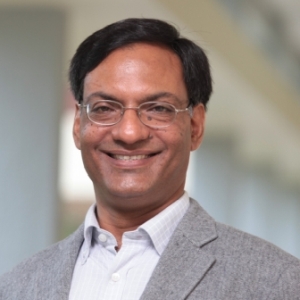
Ashutosh Sharma
President, Indian National Science Academy (INSA)
Ashutosh is an Institute Chair Professor at IIT Kanpur, elected President of the Indian National Science Academy (2023–25), a former Secretary of Department of Science and Technology, Government of India (2015–2021). His research contributions are highly interdisciplinary, spanning a wide spectrum in nanotechnology. He has published more than 350 peer reviewed papers. Prof. Sharma is a recipient of numerous honors and awards including the Padma Shri (2025), UNESCO Medal (2017), Infosys Prize (2010), TWAS Science Prize (2008), S.S. Bhatnagar Prize (2002), and Humboldt Foundation Bessel Research Award (2006) and several Honorary Doctorates from India and USA.
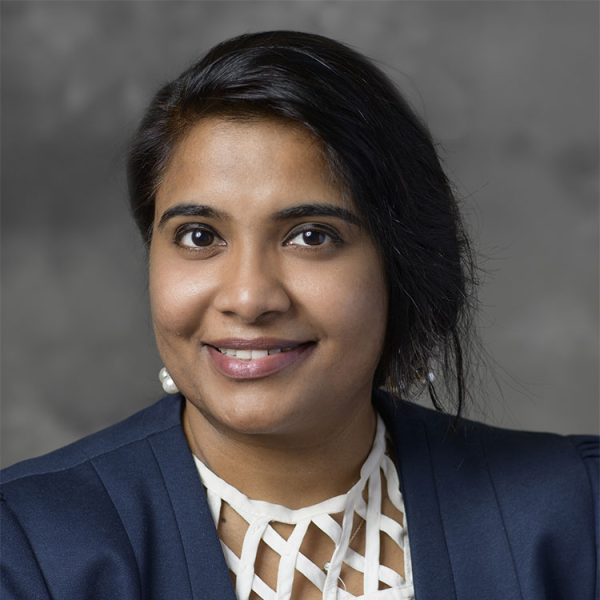
Senior Scientist, ICAR-Indian Agricultural Research Institute; GYA & INYAS Member
Veda is a research scientist with 13 years of expertise in food and nutritional science and heads the Food Matrix Lab at ICAR-Indian Agricultural Research Institute, New Delhi. Her work centers on improving global health through innovative food research, focusing on bio-functional foods and enhancing carbohydrate quality to promote satiety via gut-sweet receptor signaling. She has authored over 85 peer-reviewed papers, holds patents, and has developed commercial food prototypes. Veda is a former secretary of INYAS, and is affiliated with NASI and INSA as a young associate, actively contributing to the scientific community.
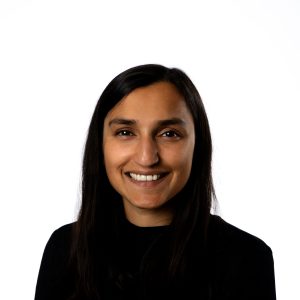
Sandeep Sandhu
Head of Stakeholder Relationships, Innovate UK Business Connect, UK Young Academy Member
Sandeep is a leading expert in global research and innovation. As Executive Director of Global, Insights and Investment at Innovate UK Business Connect, she drives strategic international engagement across government, industry, and academia. At UKRI, Innovate UK, and the Medical Research Council, she has led major global initiatives, shaped international innovation policy, and delivered cross-border R&D programmes. Sandeep holds a PhD in Biochemistry from the University of Birmingham, conducting research for the Ministry of Defence.
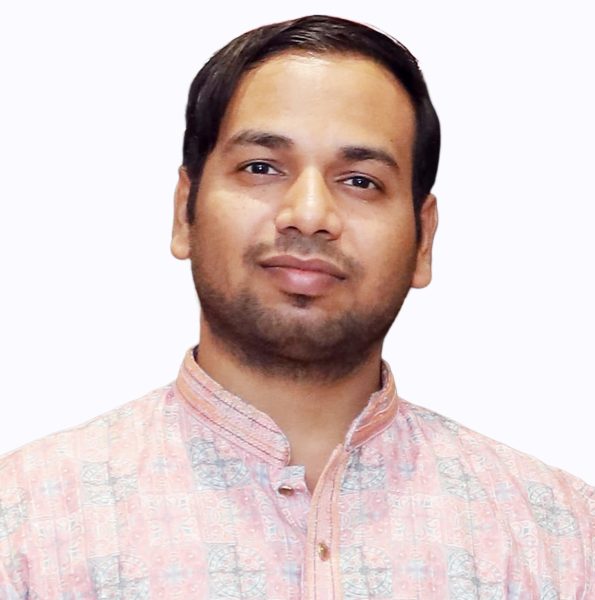
Suryesh Kumar Namdeo
Senior Research Analyst, DST-Centre for Policy Research- Indian Institute of Science, Bangalore, INYAS Member
Suryesh is a Senior Research Analyst at the Indian Institute of Science, Bangalore, and a member of the Indian National Young Academy of Sciences (INYAS). He leads research projects on science diplomacy and biosecurity. Previously, he was the science and technology consultant for the Biological Weapons Convention at the UN Office for Disarmament Affairs in Geneva. He has co-chaired a multinational biosecurity project with the US National Academies (NASEM) and currently serves on the advisory board for the International Biosecurity and Biosafety Initiative for Science (IBBIS). Earlier, he had worked as the Program Officer for India’s Science, Technology, and Innovation Policy Fellowship.
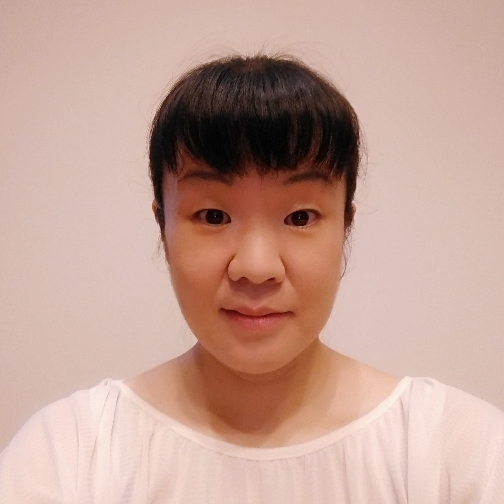
Kana Asano
Science diplomacy expert at Japan Science & Technology Agency (JST)
Kana is Head of the Science Diplomacy Group at the Center for Research and Development Strategy (CRDS) and Manager of the Office for International Science and Technology Policy and Information Study at the Japan Science and Technology Agency (JST). Since joining JST in 2009, she has been engaged in science and technology (S&T) innovation policy research and diplomacy. She has supported the Science and Technology Advisor to the Cabinet of Japan and the Advisor to the Minister for Foreign Affairs. Her experience spans international affairs, operation of S&T funding programs, and promoting global collaboration in science, technology, and innovation.
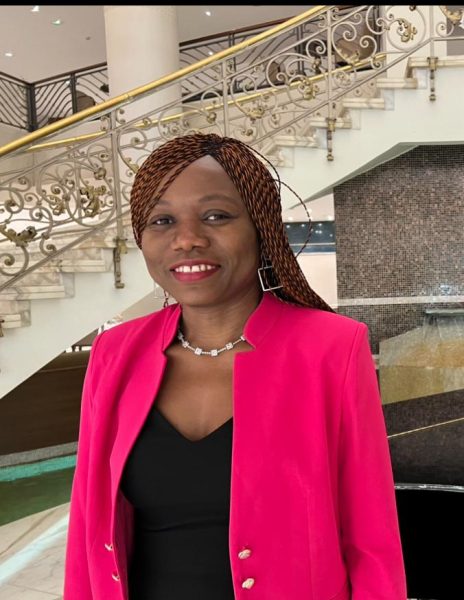
Chief Policy Advisor, Office of the Principal Scientific Advisor to the Government of India
Justine is the Deputy Director of Research, Valorization and Innovation at the Institute of Medical Research and Medicinal Plants Studies in Cameroon specialized in Plant Biotechnology and recently in Science Policy. Her academic journey includes fellowships from UNESCO-L’Oréal for doctoral research at the University of Florida (2011) and Alabama A&M University (2013), TWAS-DFG at Geisenheim University, Germany (2018) for postdoctoral research, and UMAPS fellowship at the University of Michigan (2022). She has served on several boards, including INGSA-Africa, UNESCO Open Science committee, and the Cameroon National Committee for Development of Technologies (CNDT).
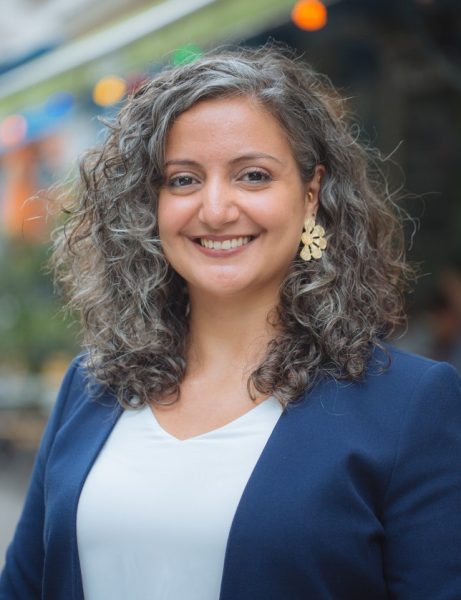
Associate Professor of Civil and Environmental Engineering and Director (interim) of the Vanderbilt Center for Sustainability, Energy, and Climate
Hiba is an associate professor and the associate chair of Civil and Environmental Engineering at Vanderbilt University. She holds secondary appointments in Computer Science and Earth and Environmental Science. Her research is interdisciplinary at the intersection of data analytics and risk analysis. Her group develops analytical methods to enhance disaster resilience. Hiba is the recipient of the Global Voices Fellowship, the National Science Foundation Early CAREER award, and the National Academy of Sciences Arab-American Frontiers Fellowship. She is a member of the Executive Committee of GYA and a fellow of the International Science Council.
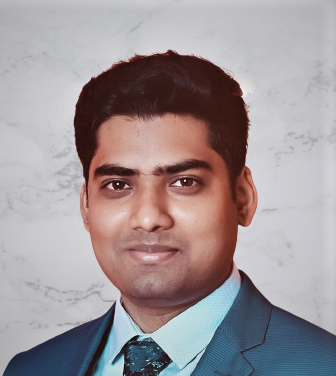
B. Chagun Basha
Chief Policy Advisor, Office of the Principal Scientific Advisor to the Government of India
Chagun is engaged in efforts related to standardization of science, technology and innovation (STI) indicators, technology foresight, shaping governance frameworks and international engagement strategies for emerging technologies, and advancing deep tech innovation. He plays a critical role in strengthening institutional mechanisms for science-policy interfaces. Dr. Basha also contributes to several regional and global task forces, actively shaping the evolving field of STI diplomacy -both as a domain of scholarship and a tool of statecraf
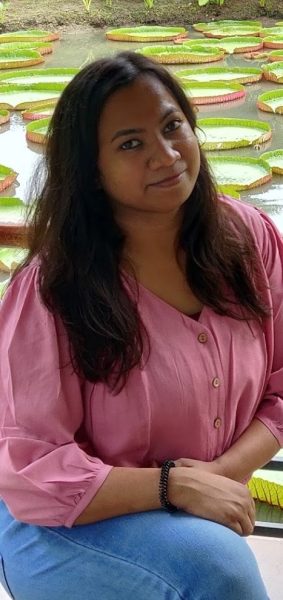
Sushmitha Ramoji
British High Commission, New Delhi, India
Sushmitha Ramoji is a public policy professional with over 10 years of experience at the intersection of technology, sustainability, and international development. Currently serving as the Senior Technology and Innovation Adviser at the British High Commission, she leads strategic UK-India collaborations in semiconductors, quantum technologies, future telecoms, and climate innovation.
With a background in urban planning, she has worked across government, private, and multilateral sectors, delivering impactful projects in energy, e-mobility, and decarbonization.

University College Cork, Ireland; GYA Co-Chair
Yensi is Co-Chair of the GYA and a Marie Skłodowska-Curie Postdoctoral Fellow at the Nobel Prize-awarded Institute for Protein Design (University of Washington) and the Cancer Research Centre at University College Cork. Her research applies cutting-edge computational protein design to engineer de novo proteins for cancer therapies and broader biomedical applications.
In addition to her scientific work, Yensi has co-founded multiple successful ventures, including an Irish diagnostics company and the first molecular biology research lab at the National University of Honduras.
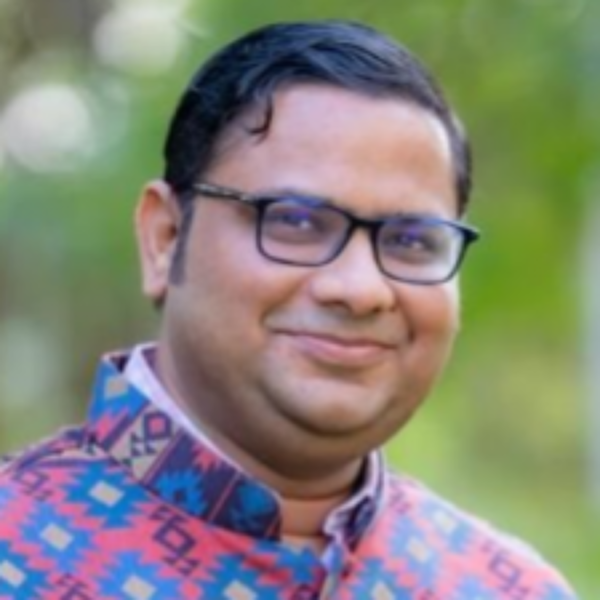
Professor, IIT Hyderabad, India; GYA Co-Chair, INYAS Member
Chandra is Co-Chair of the Global Young Academy (GYA) 2024/25. Chandra is a faculty member at the Indian Institute of Technology (IIT) Hyderabad, with his research focus on Polymer & Carbon Nanomaterials, Electrospun Nanofibers, Energy Storage Devices such as batteries and supercapacitors, Carbon-MEMS, Waste Management, Nature Inspired Functional Surfaces, and Controlled Drug Delivery. He has previously chaired the Indian National Young Academy of Sciences in 2020 and has recently been selected as Indian National Science Academy Associate Fellow for showing exceptional potential to be a leader in research.
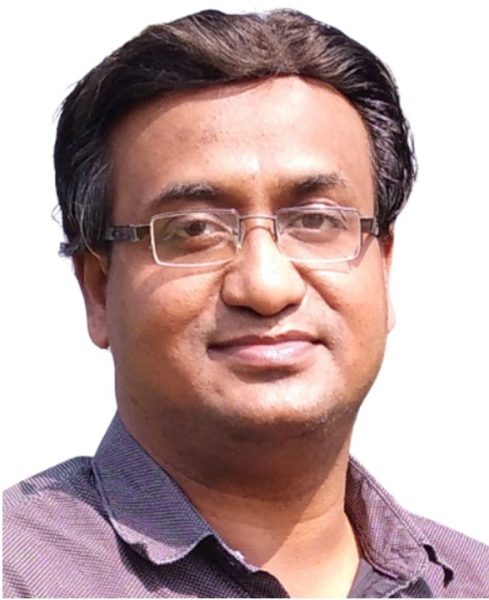
Associate Professor, IIT Kharagpur, India; Chair of INYAS
Nishant is an Assistant Professor at the School of Medical Science and Technology, IIT Kharagpur. A medical graduate from Patna Medical College, he earned his MMST from IIT Kharagpur with the Institute Silver Medal and completed his PhD from Queensland University of Technology, Australia, receiving multiple honors, including the Executive Dean’s Commendation for Outstanding Doctoral Thesis. His experience spans clinical roles, research internships in Canada and the UK, and industry work with Philips India. He is the chair of the Indian National Young Academy of Sciences (INYAS) and a member of the Royal Society of Biology (UK).
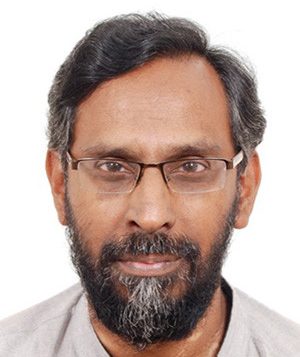
Director, IIT Hyderabad
Budaraju is a distinguished metallurgical engineer and Director of IIT Hyderabad since 2019. He also served as Director of NIT Andhra Pradesh (Feb–Aug 2024) and IIIT Raichur (Jan–Nov 2024). Awarded the Shanti Swarup Bhatnagar Prize in 2007, he has held faculty roles at IIT Madras and IIT Kharagpur. His research focuses on high entropy alloys, bulk metallic glasses, nanocrystalline materials, and advanced characterization methods. He has authored over 400 publications, 4 books, filed 20 patents, and supervised 39 PhDs.

Chairman, Board of Governors, IIT Hyderabad
Mohan is Founder Chairman of Cyient a company he founded and built (earlier Infotech Enterprises) in 1991, with the vision of providing engineering services to global markets. He established the “Engineered in India” brand and led Cyient to contribute more than $5 billion in cumulative exports to several international customers, including many Fortune 100 companies. Dr BVR Mohan Reddy is also the Founding Director of T-Hub, the largest start-up incubation center in India. He has taken up several leadership positions to promote higher education. At present, he is the Chairman of the Board of Governors of IIT Hyderabad and IIT Roorkee.
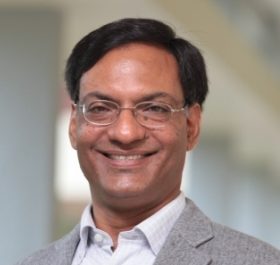
President, INSA
Ashutosh is an Institute Chair Professor at IIT Kanpur, elected President of the Indian National Science Academy (2023–25), a former Secretary of Department of Science and Technology, Government of India (2015–2021). His research contributions are highly interdisciplinary, spanning a wide spectrum in nanotechnology. He has published more than 350 peer reviewed papers. Prof. Sharma is a recipient of numerous honors and awards including the Padma Shri (2025), UNESCO Medal (2017), Infosys Prize (2010), TWAS Science Prize (2008), S.S. Bhatnagar Prize (2002), and Humboldt Foundation Bessel Research Award (2006) and several Honorary Doctorates from India and USA.

Union Minister of Education, Government of India
Dharmendra is an Hon’ble Minister of Education to the Government of India since July 2021. He has also held the portfolios of Minister of Skill Development and Entrepreneurship (2017–2021), Minister of Petroleum and Natural Gas (2014–2021), and Minister of Steel (2019–2021). He spearheaded the implementation of the National Education Policy 2020 in the country. He introduced several progressive initiatives that have positively impacted the educational ecosystem of the country.
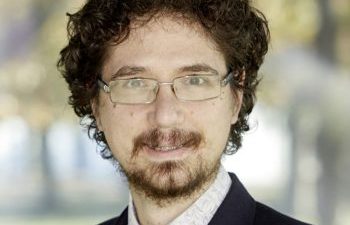
Francesco Maurelli
Professor in Marine Systems and Robotics, Constructor University, Germany; GYA Executive Committee Member
Francesco is a Professor in Marine Systems and Robotics at Constructor University, in Bremen (Germany, EU), where he also serves as Program Chair for the Robotics and Intelligent Systems Program. He has obtained his PhD at the Oceans Sytems Lab, Heriot-Watt University (Edinburgh, Scotland) with a thesis on intelligent AUV localisation. He has been Scientific Manager at Technical University of Munich (Germany, EU) where he lead European-wide initiatives to support moving robotics technology from the lab to the market. His experience includes a research stay at Massachusetts Institute of Technology (Cambridge, MA, USA) and a Marie Curie Fellowship.

Subi Chaturvedi
Global SVP, Chief Corporate Affairs and Public Policy Officer, InMobi
Subi (PhD (IIT Delhi), is the Global Senior Vice President & Chief Corporate Affairs & Public Policy Officer at InMobi Group. A distinguished expert in public policy, digital economy, internet governance and cybersecurity, she has advised global organizations, governments, and Fortune 500 companies. She serves on the Indian national Science Academy board WAP, and is the first Indian on the UN IGF MAG to have represented two stakeholder groups, appointed by the UN Secretary General. She currently co-chairs the Jt Indo US AI Task Force, Digital Economy committee, USIBC, and is the Sherpa for WG7 of the US-India CEO Forum, shaping policy in AI, cybersecurity, entrepreneurship and emerging technologies.

Jayesh Ranjan
Special Chief Secretary, Industry & Investment Cell, Govt. of Telangana
Jayesh is a member of the IAS of the 1992 batch and working in the state of Telangana as a Special Chief Secretary for Youth Advancement, Tourism, and Culture, Govt. of Telangana. He is also the CEO of the Industry & Investment Cell, Govt. of Telangana. He holds a Master’s Degree in Psychology from Delhi University, a degree in Business Management from the IIM, Calcutta, and a Masters in Public Management from Lee Kuan Yew School of Public Policy, NUS, Singapore. Among his other distinctions, he was awarded the Royal Order of the Polar Star by His Majesty The King of Sweden in 2019. He has also been awarded Honorary Doctorate from the University of Bolton (UK) in 2022.
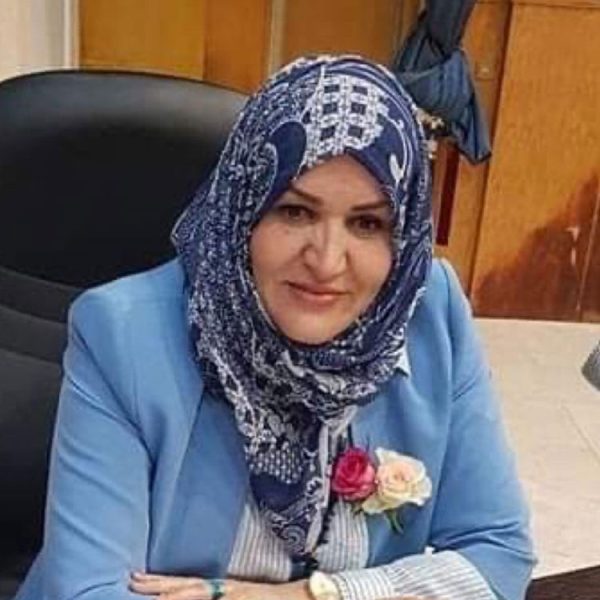
Nohad AlOmari
Former Dean and Professor, Mosul University, Iraq
Nohad A AlOmari works in the field of pharmaceutical sciences and the education sector. She was active in this field for more than three decades with a proven record, a professional history, patents, and national and international scientific awards. Prof. AlOmari has a strong and clear vision to find realistic solutions to challenges in the field of pharmaceutical education and sciences.
Nohad was Deputy Dean of the College of Pharmacy at the University of Mosul at the alternate location for the years 2014-2017 – this period of time was a turning point in her academic career, being full of challenges. She has also been appointed Dean of the College of Pharmacy / University of Al-Kitab, where she focused on empowering women.
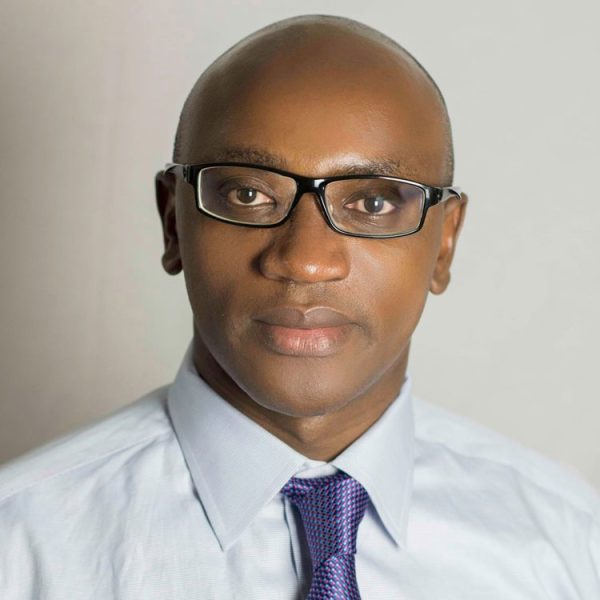
Lecturer at the Faculty of Law, Egerton University, Kenya; GYA Member
Erick is a practising lawyer and academic/researcher based out of Nairobi, Kenya, and Listed Counsel of the African Court of Human & Peoples’ Rights. He serves as the official Ombudsman for Amnesty International, Kenya. He is a Member of Tax Appeals Tribunal, where he adjudicates cases on tax law and administration; and Chairs TAT Committee on Trainings, Capacity Building & Resource Mobilisation & Senior Lecturer, Faculty of Law, Egerton University. He also serves as Visiting Lecturer at Strathmore Law School, where he designed and taught the first LL.M Unit on Public Private Partnerships (in Africa) (PPP) in Kenya.
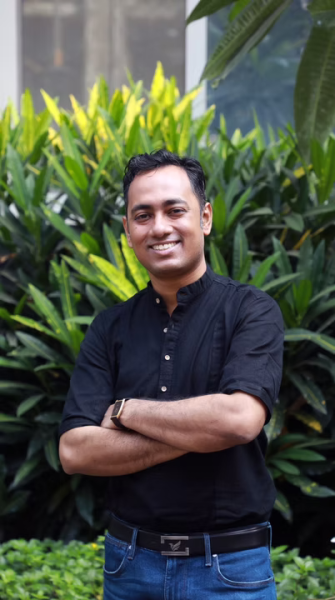
Arnab Dutta
Associate Professor, Indian Institute of Technology Bombay; INYAS Member
Arnab completed his B.Sc. at Presidency College Kolkata and M.Sc. at IIT Bombay in 2007. He earned his PhD in inorganic chemistry from Arizona State University in 2012, focusing on bio-inspired green hydrogen production. After working at Pacific Northwest National Laboratory on synthetic catalysts for H₂ production, he began his independent career at IIT Gandhinagar in 2015. Since 2020, he is an Associate Professor at IIT Bombay. His research focuses on sustainable green hydrogen production, CO₂ mitigation, water oxidation, and small molecule activation. Arnab is a Ramanujan Fellow and an associate of the Indian Academy of Sciences and INYAS member.
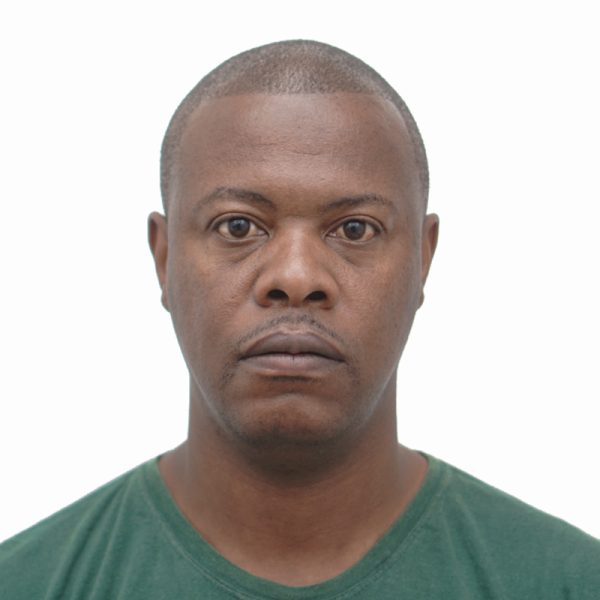
Senior Lecturer, Dept. of Environmental Science, National University of Science and Technology, Zimbabwe; GYA Member
Keith is an independent researcher and consultant. He is a senior lecturer at the National University of Science and Technology in Zimbabwe. He has research interests in urban health and the environment, particularly in climate change. He has researched smallholder farmers’ adaptive responses to global warming. Keith is also interested in gender issues, poverty, water, peace and conflict, natural resource governance, and food security. He holds a PhD in Social Sciences (University of Fort Hare, South Africa). He has several research articles from referred journals on climate change impacts and adaptation. He is an Eisenhower Fellow class of 2022 USA and an active GYA member (2023– 2028).
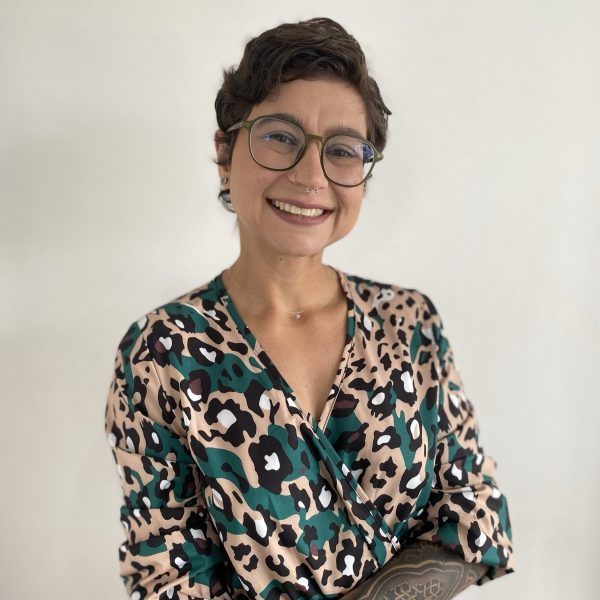
Professor of Ecology, Federal University of Bahia, Brazil; GYA Member
Luisa Maria is a postdoctoral researcher at the University of Mississippi, a permanent professor at the Graduate Program of Ecology at the Federal University of Bahia, Brazil, and a collaborator professor at the Graduate Program of Zoology at the State University of Santa Cruz, Brazil. She is the chair of the Brazilian Chapter of the Organization for Women in Science for the Developing World, vice-chair of the Brazilian Association of Ecological Science and Conservation, co-founder and chair of the Kunhã Asé Network of Women in Science, and council member of the European Society for Evolutionary Biology.
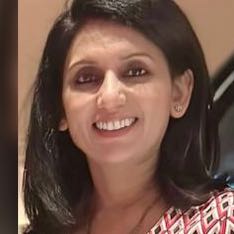
Smita Pandey Mishra
Founder and CEO, Fandoro Technologies Pvt Ltd
Smita is the Founder and CEO of Fandoro Technologies, a platform that blends generative AI with expert consulting to help businesses integrate ESG frameworks and the UN’s Sustainable Development Goals (SDGs).
With a background in financial services, retail, banking, and utilities, Smita specializes in data analysis, risk management, and user experience. She is also an international speaker and a strong advocate for diversity in tech, mentoring future women leaders. Her expertise has earned her global recognition, including an invitation to COP29 by the UN Climate Change – Global Innovation Hub to present her work on the “Framework for Measuring Alignment of Businesses to Human Needs.”
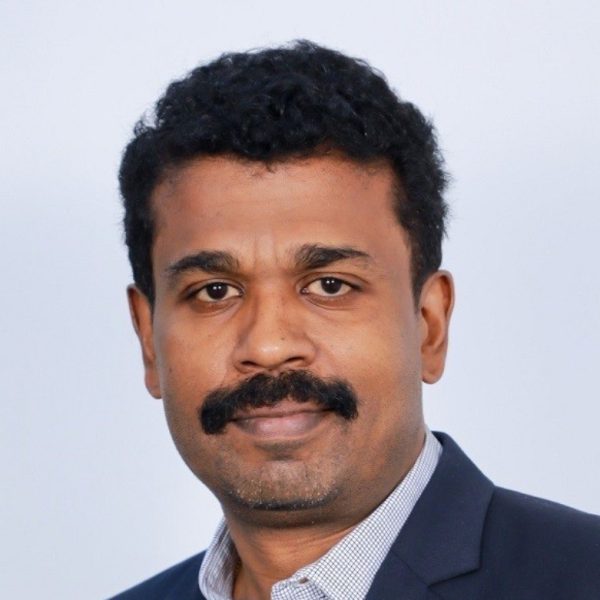
Balaji Kaliappan
Director of Engineering, Carrier Technologies
Balaji has been Director – Engineering at CARRIER since 2014, and has over 25 years of experience in product design, R&D, and systems engineering across HVAC, fire safety, and industrial automation. He has successfully led global teams of 130+, championed model-based systems engineering, and driven innovation with over 300 patent applications from his center, including 4 personal filings. Previously at GE Energy, he led controls COEs and major strategic initiatives. Balaji holds an M.Tech. from BITS Pilani and additional credentials from IIM Bangalore and ICFAI.
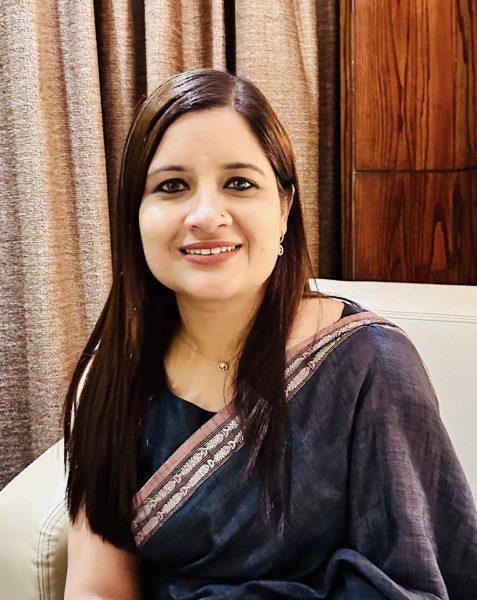
Shweta Yadav
Assistant Professor, Central University of Jammu; INYAS Member
Shweta is Faculty in Environmental Sciences and Associate Dean International Affairs at Central University of Jammu, Jammu & Kashmir and Adjunct Faculty at Department of Civil Engineering, IIT Madras, Tamil Nadu, India. Her groups works in the field of Aerosols, Air quality, Human health and Climate. She is also heading the Himalayan High Altitude Atmospheric and Climate Research (H2A2CR) Centre in the Himalayas. Prof. Yadav as Nodal faculty for Jammu & Kashmir under National Clean Air Programme is working closely with policy makers and pollution control board to achieve clean air goals in the Himalayan Region.
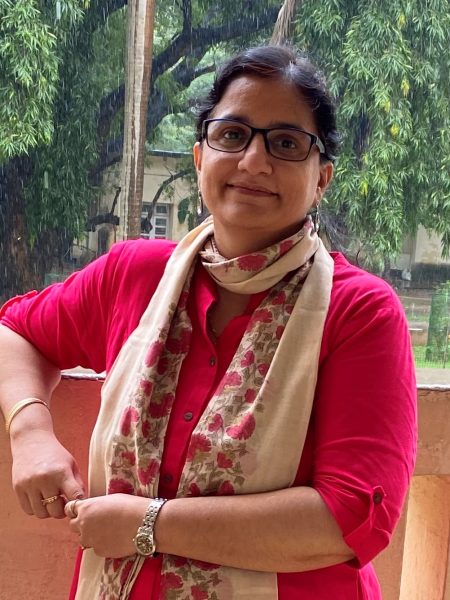
Nishad Fathima Nishter
Chief Scientist, Senior CSIR-Central Leather Research Institute, India; INYAS Member
Nishad is Chief Scientist at CSIR-Central Leather Research Institute, India, holding B.Tech, M.Tech, and PhD degrees in Leather Technology from Anna University. A gold medalist and DAAD fellow, her research focuses on protein assemblies and ionic liquids for collagen stabilization, leading to biomaterials development and protective gloves for extreme cold. She has published 133 papers, holds 9 patents, and led multiple funded projects. Awarded the INSA Medal for Young Scientist, INAE Young Engineer Award, and SERB Woman Excellence Award, she is a Fellow of Madras Science Foundation and a young associate of INAE and INYAS.
Flavia Schlegel
CEO Science Governance Partnership, Switzerland
Flavia Schlegel has a distinguished international career, including positions as a Science Diplomat in the United States and China.
As Assistant Director General for the Natural Sciences, she oversaw UNESCO’s response to the 2030 Agenda or the Paris Agreement. In Shanghai, Flavia established swissnex China, a trans-disciplinary institution supported by public and private funding.
In a senior advisory role, Flavia’s mandates include science engagement for HEALTH AI, SDG alignment for a multilateral development bank or support to the Swiss COVID-19 task force.
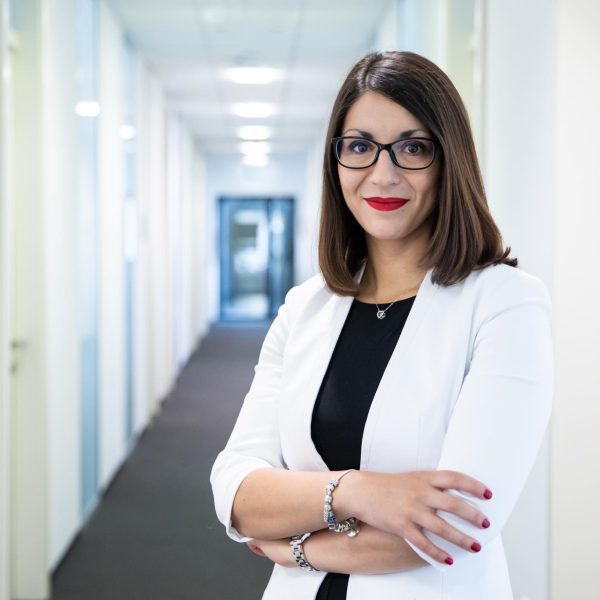
Associate Professor, Faculty of Electrical Engineering, University of Ljubljana, Slovenia; GYA Member
Emilija is an accomplished leader in digital transformation, an associate professor at the Faculty of Electrical Engineering, University of Ljubljana, and a former Minister of Digital Transformation for Slovenia. With a career spanning academia, innovation, and public service, she has consistently driven impactful initiatives that bridge technology, policy, and sustainable development. In 2024, Dr. Stojmenova Duh was selected as one of the 100 Women in GovTech by GovInsider, recognizing her contributions to the field of digital transformation and innovation.
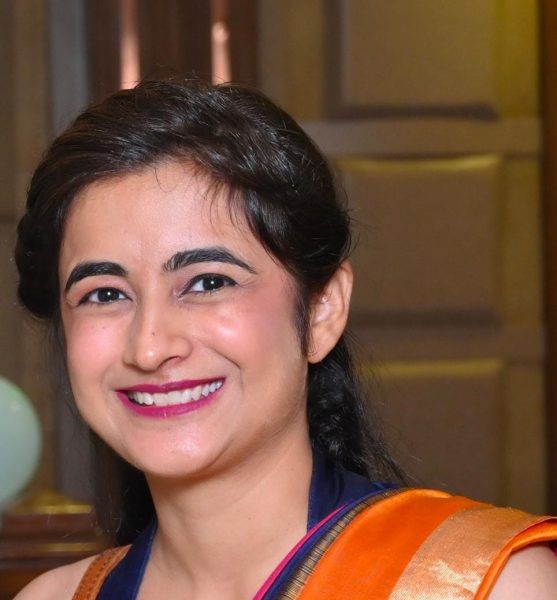
Rishemjit Kaur
Principal Scientist, Council of Scientific & Industrial Research – Central Scientific Instruments Organisation; INYAS Member
Rishemjit is a Principal Scientist at CSIR-Central Scientific Instruments Organisation, Chandigarh and an Associate Professor at the Academy of Scientific and Innovative Research (AcSIR). She specializes in artificial intelligence and big data analytics, focusing on modelling social phenomena using agent-based models and natural language processing for social good, particularly in agriculture, nutrition, and food. She is developing large language models tailored for Indian farmers in local languages. She is a member of NASI and INYAS and has received multiple honors, including the IEI Young Engineer Award, the Japanese Government MEXT Scholarship and representation at the BRICS Young Scientist Forum.
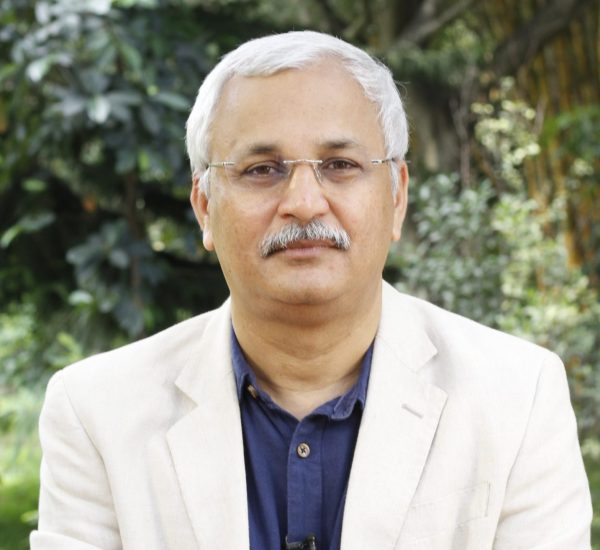
Suresh Bhagavatula
Professor, Indian Institute of Management Bangalore
Suresh is a faculty member in Entrepreneurship at IIM Bangalore. His research, focusing mainly on the Indian context, explores how social capital theory, effectuation, and entrepreneurial scripts help understand the function of informal industries, accelerators, and technology ventures. This work contributes to understanding entrepreneurship in developing economies. As a faculty member, he has trained women entrepreneurs, family businesses, and startups through programs like the Women Startup Program, the Goldman Sachs 10000 Women program, and the Management Program for Entrepreneurship and Family Businesses, which he headed.
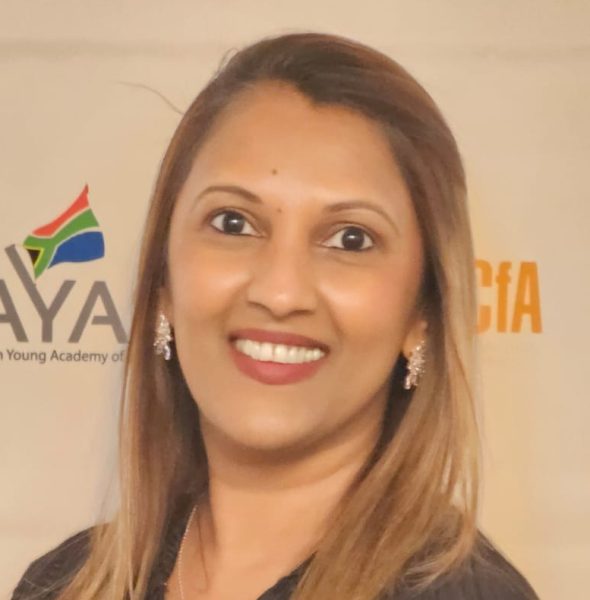
Senior Research Specialist at the Human Sciences Research Council, South Africa; GYA Member
Natisha is a leading public health scientist whose interdisciplinary research advances equity, sustainability, and leadership in science. With a PhD in Public Health and over a decade of experience as a medical scientist, lecturer, and researcher, her expertise spans nutrition, and child and adolescent health. As a Senior Research Specialist at the Human Sciences Research Council, she leads large-scale, multi-stakeholder projects that inform public health policy and practice, particularly in underserved communities. Dr. Dukhi is a thought leader and advocate for inclusive research systems, science diplomacy, and capacity building. She has served as a Fellow of the Africa Science Leadership Programme, and is a former Co-Chair of the South African Young Academy of Science.
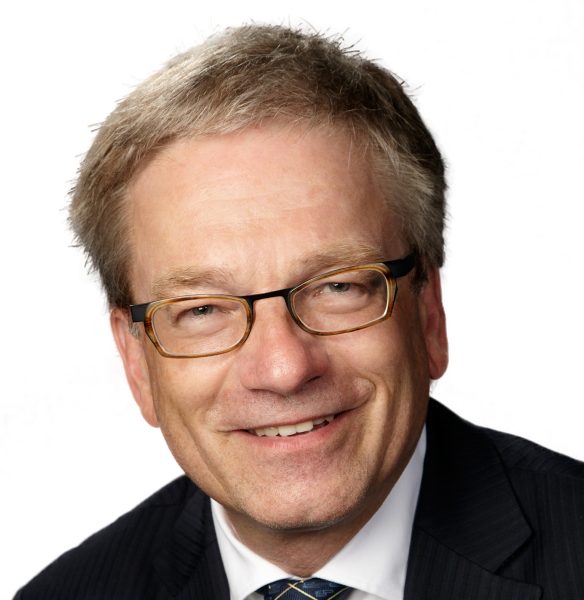
Rémi Quirion
President, International Network for Governmental Science Advice (INGSA)
Rémi is the inaugural Chief Scientist of Quebec since July 2011. As such, he chairs the Fonds de recherche du Québec and advises the Minister of Economy, Innovation and Energy on research and scientific development issues. As of September 2021, he is the President of the International Network for Governmental Science Advice (INGSA), a network present in over a hundred different countries with more than five thousand members.
Until his appointment as chief scientist, Rémi Quirion was the vice-dean for science and strategic initiatives in the faculty of medicine at McGill University and senior university advisor on health sciences research.
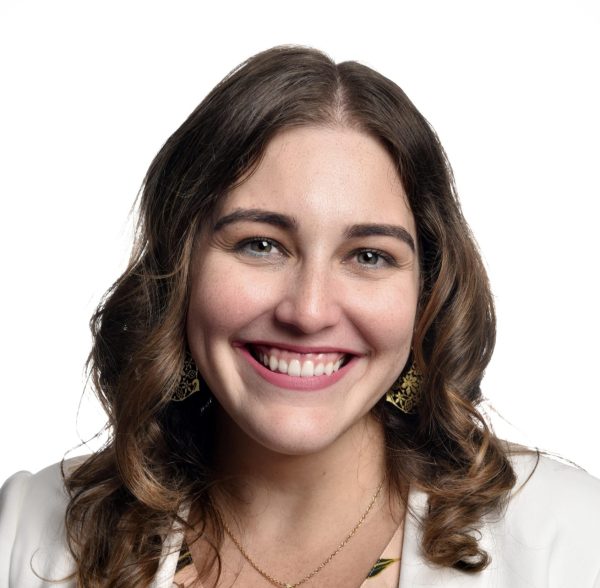
Luz Milbeth Cumba Garcia
Former Advisor for Sustainability, U.S. Department of State, Bureau of Global Health Security and Diplomacy; GYA Member
Luz is an immunologist, policy advisor, and science communicator. She recently served as Advisor for Sustainability at the U.S. Department of State’s Bureau of Global Health Security and Diplomacy, supporting global HIV/AIDS initiatives through the President’s Emergency Plan for AIDS Relief (PEPFAR). A AAAS Science & Technology Policy Fellowship alumna, she contributed to U.S.-Mexico global health policy at the State Department and Arab-Israeli scientific collaboration at USAID. She is founding member of the Science Diplomacy Network in Latin America and the Caribbean (DiploCientifica).
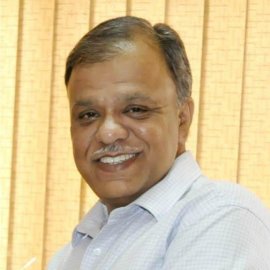
Debashis Mitra
Vice-President, Indian National Science Academy (INSA, International Affairs)
Debashis is currently a DBT-Distinguished Scientist at National Centre for Cell Science, Pune. He was a Scientist at NCCS from 1998 to 2020. In between, he served as a Director of Centre for DNA Fingerprinting and Diagnostics, Hyderabad for three years and also as Interim CEO of DBT-Wellcome Trust India Alliance from 2022-2023. Dr. Mitra’s primary research interest has been molecular and cellular basis of HIV pathogenesis, host-virus interaction and anti-viral drug discovery. Dr. Mitra has been an elected Fellow of all the three Indian Science Academies. He was also awarded Tata Innovation Fellowship by DBT and JC Bose National Fellowship by DST. Dr Mitra is also currently Vice-President (international Affairs) of Indian National Science Academy.
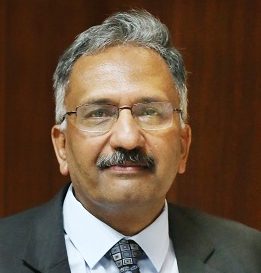
Sanjay Behari
Director, Sree Chitra Tirunal Institute for Medical Sciences and Technology (SCTIMST), India
Sanjay is the Director of Sree Chitra Tirunal Institute for Medical Sciences and Technology (SCTIMST), Thiruvananthapuram. A renowned neurosurgeon, he previously served as Professor in the Department of Neurosurgery at SGPGIMS, Lucknow. With a distinguished career in clinical practice, teaching, and research, Dr. Behari is known for his expertise in complex neurosurgical procedures. He also serves as Vice Chairman of SCTIMST-TIMed, supporting innovation in medical technology. Under his leadership, SCTIMST continues to advance in healthcare, biomedical research, and technology development. He is committed to excellence in patient care and academic collaboration.
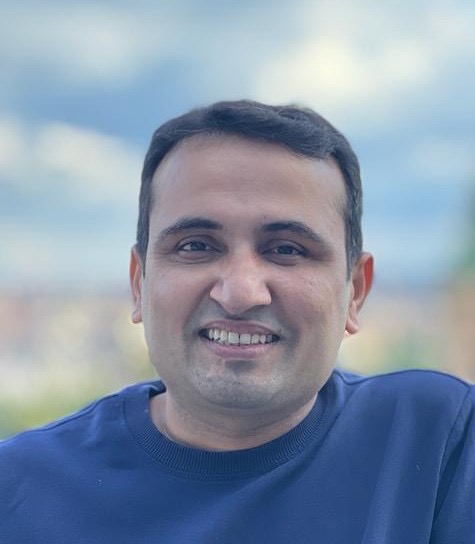
Rakesh Kumar Pilania
Assistant Professor, Post Graduate Institute of Medical Education and Research (PGIMER), Chandigarh; INYAS Member
Rakesh is an Associate Professor of Pediatrics, Pediatric Allergy Immunology Unit, PGIMER, Chandigarh, recognized as a World Health Organization (WHO) Collaborating Centre for Education, Research and Training in Pediatric
Immunology. His work focuses on childhood immune and inflammatory disorders, with a special interest in Kawasaki disease—the most common cause of acquired heart disease in children worldwide and a growing public health concern. He leads several national and
international collaborative studies supported by grants from the Indian Council of Medical Research (ICMR), Department of Biotechnology (DBT), Department of Science and Technology (DST), and Asia Pacific League of Associations for Rheumatology (APLAR).
